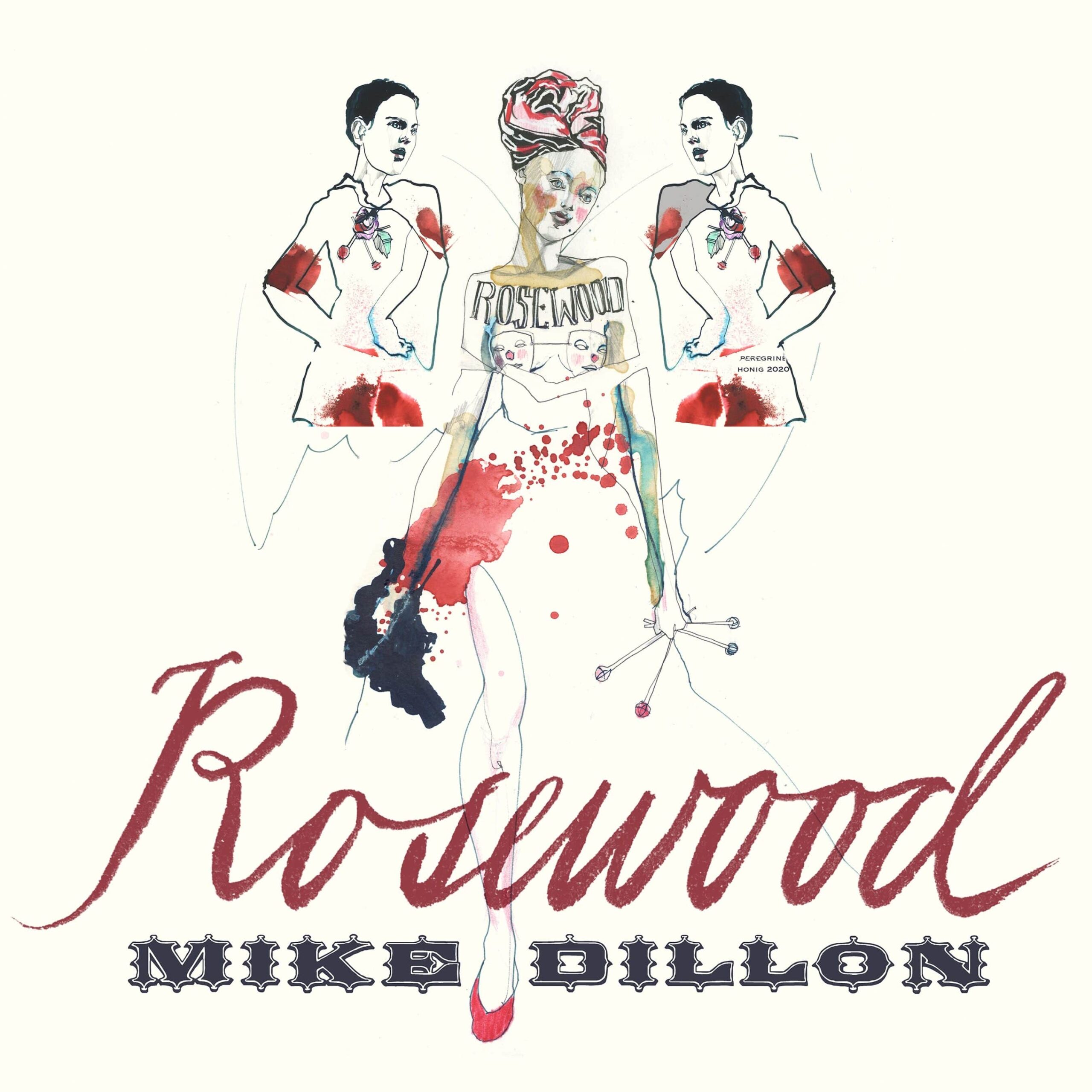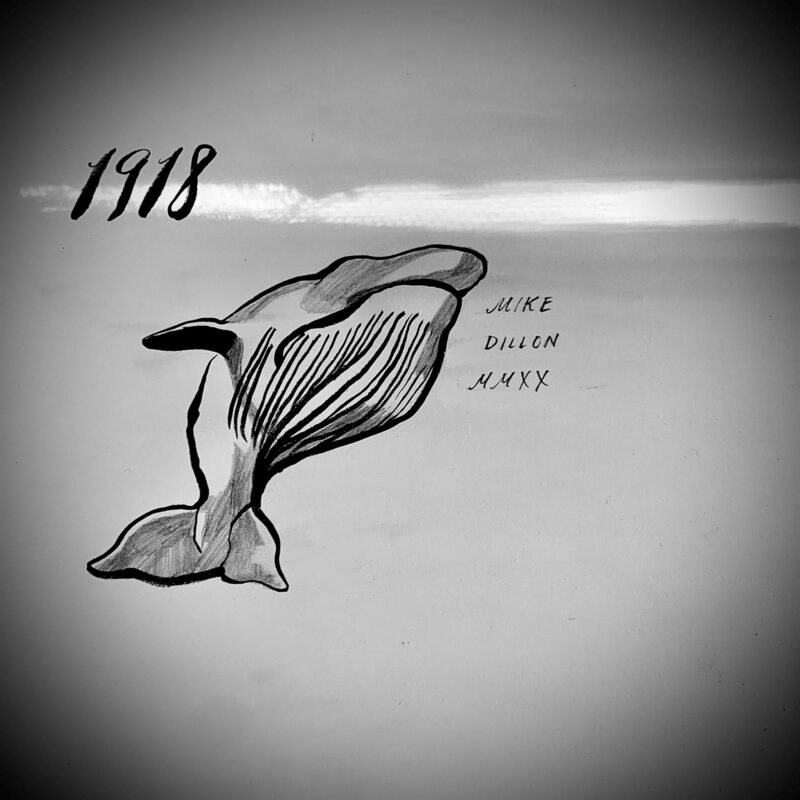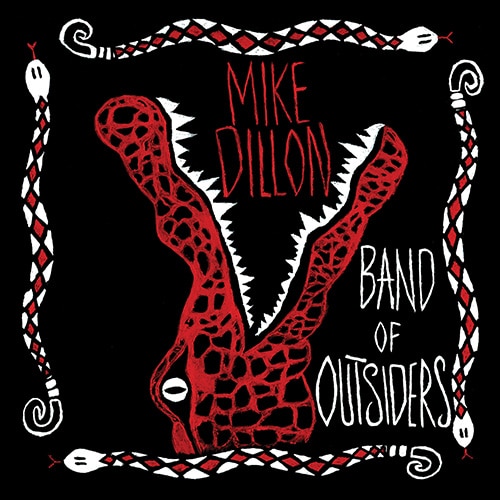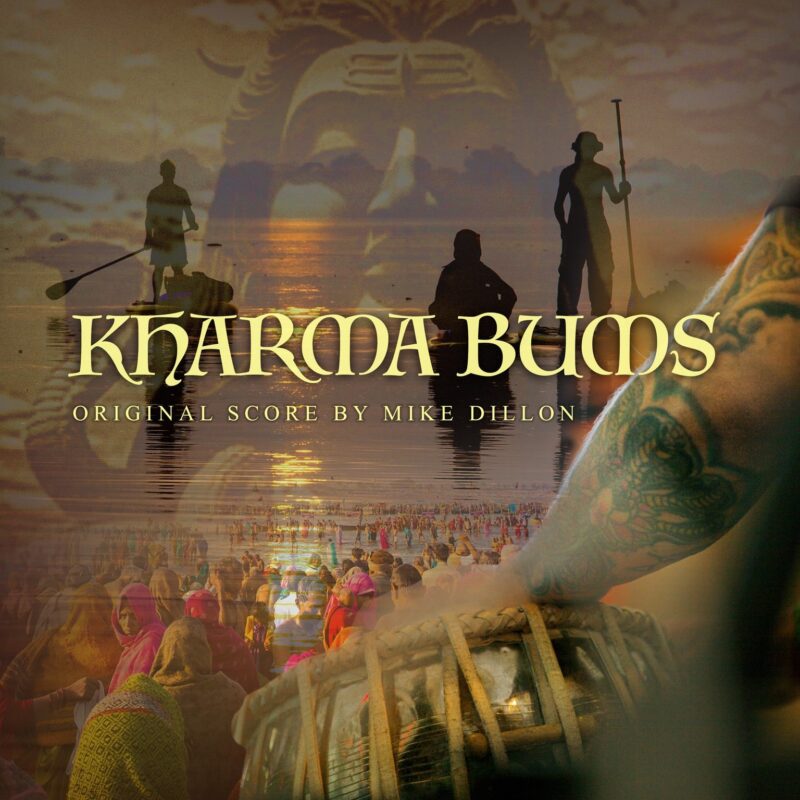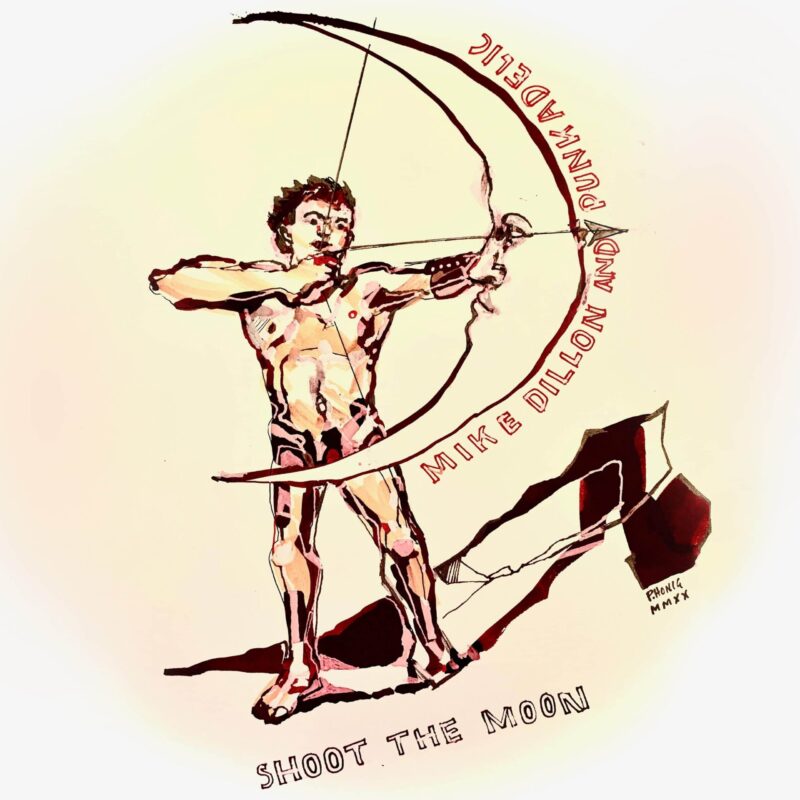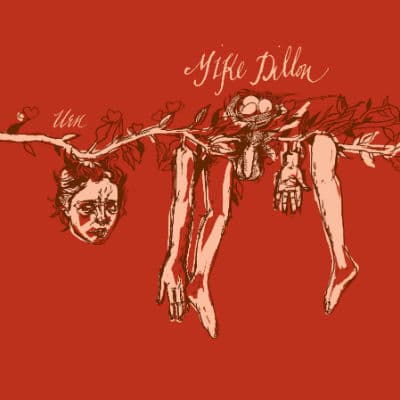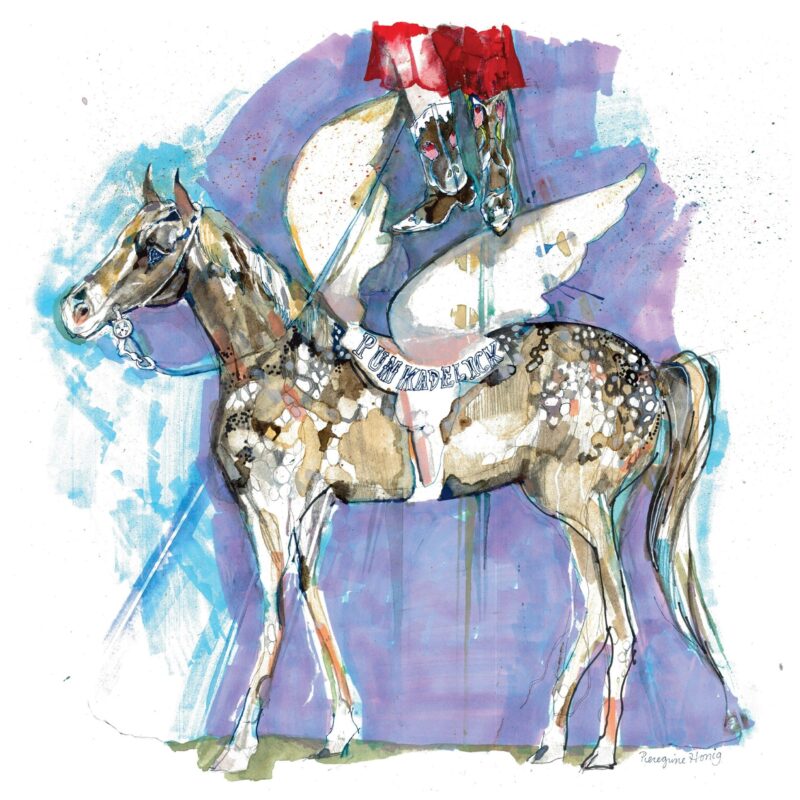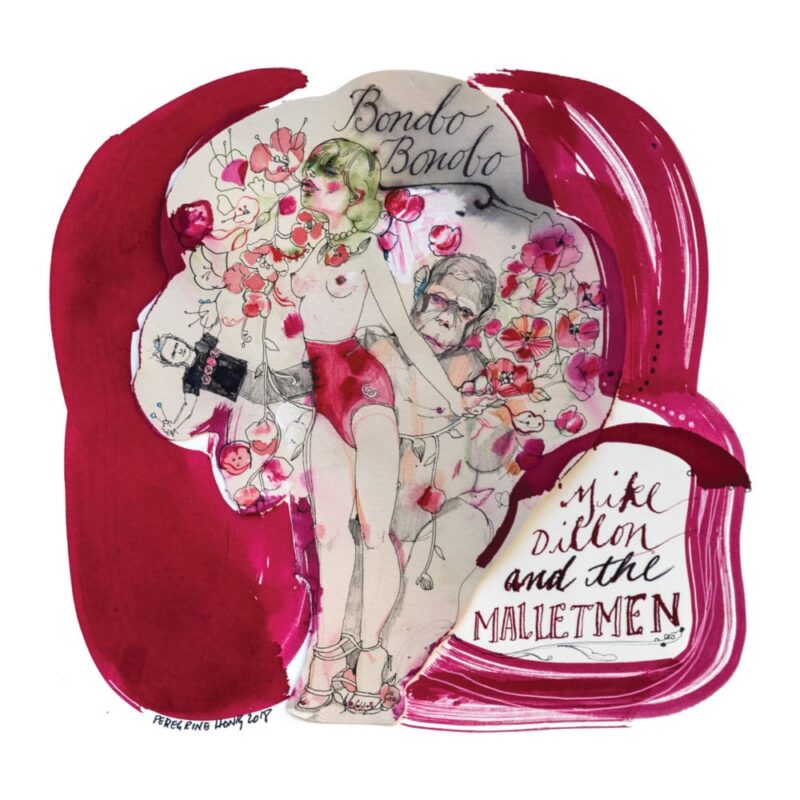Mike Dillon’s latest album ‘Rosewood’ musically signifies transition and transformation. The 13-track collection was written and recorded during a period of profound change. Dillon found himself relocating from his fourteen year base in New Orleans to his current residence in Kansas City. This coincided with the beginning a new relationship that would result in marriage. Recorded intermittently between January 2018 and September 2019, its 13 majestic tracks swirl with the tangled and bittersweet emotions of one chapter ending as another began. Dillon created the album solely with vibraphone and percussion instruments and titled the record ‘Rosewood’ after the type of lumber used to make marimba bars.
“I started spending time in Kansas City in August 2017, where I’d previously lived in 1997,” explains Dillon. “My friend of twenty years, Peregrine Honig, invited me to see her beautiful art studio converted from an old church building called Greenwood Social Hall. By December, I brought my marimba there and would play for hours. The songs on this record wrote themselves in that sonically sacred space.”
Furthering this metamorphosis, ’Rosewood’ also finds Dillon, who’s been hailed “a punk jazz provocateur,” shifting from the freewheeling, anything goes aesthetic that informed his primary touring unit, The Mike Dillon Band, to a more conceptual and compositional approach. He’d hinted at this side of his musical personality with the 2016 album release ‘Functioning Broke,’ as well as, three performances with his 23-piece New Orleans Punk Rock Percussion Consortium at The Music Box Village. The introspective ‘Functioning Broke,’ however, relied heavily on outside material, including songs by Elliott Smith, Neil Young and Martin Denny, while the latter performance experiment required the massive energy generated by two dozen musicians on percussion and mallet instruments. On ‘Rosewood,’ Dillon boils down the essence of those two projects into a focused auditory journey, drawing almost exclusively on his own compositions with exception of two additional Elliott Smith songs, “Talking To Mary” and “Can’t Make A Sound,” along with the ghostly take on Johnny Cash arrangement of the classic Trent Reznor / Nine Inch Nails’ song “Hurt.” Dillon performed all of the parts himself with exception of contributions by drummer and frequent collaborator Earl Harvin and the guiding hand of Dillon’s old friend, recording engineer Chad Meise.
“When I decided to record in Kansas City, I immediately recruited Chad. He and I made several Malachy Papers’ records, the Go Go Jungle album ‘Battery Acid’ and the Mike Dillon Band record ‘Urn.’ Our chemistry in the middle of a really bittersweet time for me simplified the process. We layered the songs on 24-track, 2-inch tape. Some songs I would start on the vibes, other times I put on a marimba first before fleshing out the rest. My old pal, the incredible drummer Earl Harvin, visited KC from his home in Berlin during the summer of 2018 and played drum kit on several of the tracks. By recording to tape, we captured the warm relationship of the percussion/mallet family.”
All of the sounds on ‘Rosewood’ are from Dillon’s collection of mallet instruments ranging from the rare Deagan Electric Bass Marimba to the Deagan Electro Vibes, a 1942 Leedy Marimba to his primary touring instrument, the Majestic Electric Vibraphone, running through a collection of analog peddles. The only non-percussion sound was a synth on “Bonobo” that was triggered by a MalletKat. The crescendo of timpani and tabla pulsate beneath the Sonic Youth-like layers of vibes on “Drone” set against the Kraut rock drumming of Harvin. The ambient Steve Reich-inspired pulsations of marimbas on “Vibes at the End of the World” capture the feeling of being in New Orleans when the Hurricane Gustav evacuation order was given to Dillon back in 2007. There are also several moments of joyful percussive optimism with tracks like “Rumba for Peregrine” and “Beignet’s Bounce.” “Sober on Mardi Gras” was composed in New Orleans on Mardi Gras Day 2019 before Dillon marched behind Big Chief Monk Boudreaux alongside Stanton Moore and Joe Gellini. “Tiki Bird Whistle” and “Earl’s Bolero” were also composed in New Orleans in an apartment that was home for many NOLA musicians, including Brian Blade, Doug Belote and John Ellis.
“Much of the feeling of this record is dealing with the sadness of moving out of a great city like New Orleans, but with the optimism of a fresh start in Kansas City,” explains Dillon. “To this day it’s hard for me not to say I live in New Orleans. However, in reality, prior to the pandemic, I lived a nomadic lifestyle in my Chevy van going wherever the next gig leads me. And yet now, in the age of Covid-19, we’re faced with change again. It is the only constant.”
Mike Dillon has been an integral member of bands including Garage A Trois, Dead Kenny Gs and Critters Buggin. He’s served as a key sideman to artists like Rickie Lee Jones, Les Claypool and Ani DiFranco. He’s amassed an extensive catalog of genre-defying recordings. He’s taken to the road relentlessly, building one of the most loyal underground fanbases on the contemporary music scene, while being invited to share bills with bands including Clutch, Dean Ween Group and Umphrey’s McGhee. For nearly three decades, Dillon has played exclusively by his own rules. With his latest work, ‘Rosewood,’ he once again embraces the philosophy of change and evolution.



